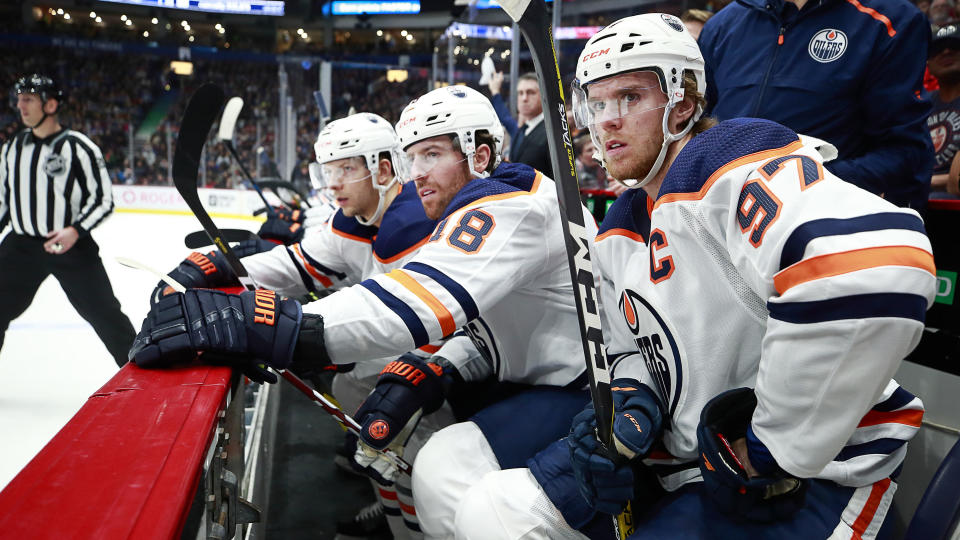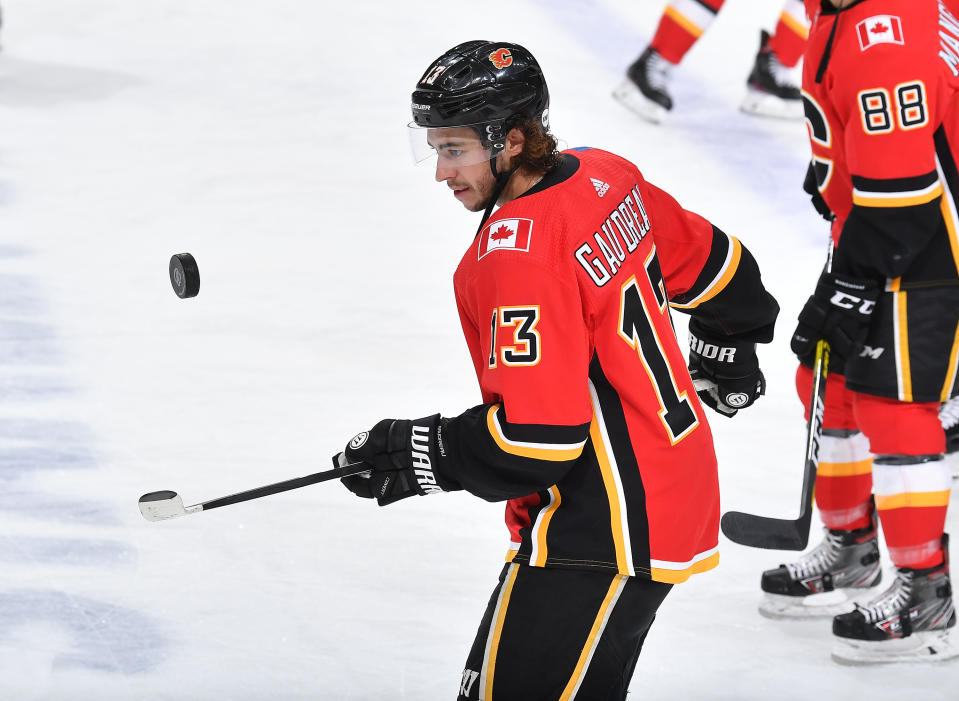How a hypothetical All-Canadian division stacks up: Part 2

Unless the Canadian government eases its stance on travel and entry, the seven franchises north of the border might have no choice but to operate independent from the rest of the league. We might be more than a little bit excited about that possibility. After breaking down the Eastern Conference entries in Part 1, here’s the second half of our look to the hypothetical all-Canadian division if the NHL is indeed forced to re-align in its restart.
Winnipeg Jets
Despite most of the noise around the Jets this offseason being centred around the possibility of Patrik Laine being traded, the only real significant move from the organization was a deal to upgrade the talent surrounding the mildly disgruntled sniper. In fact, the acquisition of veteran Paul Stastny was more than just significant, it was actually the most expensive addition from any Canadian team in terms of next season’s cap hit.
How smart it was, though, to bail out the Vegas Golden Knights and re-introduce Stastny back to the mix on his full $6.5 million salary is up for debate given that five other Jets forwards are already beyond the $6 million threshold themselves — which in itself had already left significant holes elsewhere on the roster. While Josh Morrissey is an impressive building block, and Neal Pionk and Dylan DeMelo have proved to be useful additions, Winnipeg is still hurting from the previous summer when Dustin Byfuglien, Jacob Trouba and Tyler Myers each exited the organization.
Fortunately, the Jets might have to top netminder in the division — and mind you, this is one that will include Carey Price. Connor Hellebuyck won the Vezina Trophy last season and was one of the most valuable players in the entire league, single-handedly raising the level of the entire team.
With elite goaltending and serious scoring ability, the Jets may be the one true wild card in an all-Canadian division. A finish anywhere between one and six seems plausible — and that seems somewhat fitting for a team that will lack familiarity as the sole representative from the Central Division.
Calgary Flames

The Flames seemed to execute on one clear mandate after another disappointing first-round exit: take from the Vancouver Canucks. Jacob Markstrom, Chris Tanev and Josh Leivo crossing provincial lines toward the east would have been the story in the Pacific Division heading into this upcoming season in a normal season, but should only grow in intrigue if the event that the trio’s former club is one of just six eligible opponents.
Setting those eight (!!) potential clashes aside, Tanev living up to expectations is important to the Flames given what the club has lost in free agency, but the success in both the short and long term for the franchise hinges predominantly on the faith it has placed in the highest-grossing free agent from the crowded goaltending class in 2020. Markstrom is the end product of many seasons spent big-game-hunting for a legitimate No. 1 starter, and arrives just in time for a franchise that seems to be entering a crossroads season. There seems to be less and less confidence that Calgary’s core, as its currently constructed, can have success in the postseason.
What Markstrom’s addition should do is eliminate the excuse — or at least that one key variable that has prevented the organization from being able to answer that question. The Flames should be highly competitive in an all-Canadian division, and certainly a threat to win it. But if they fail to meet expectations in a shortened schedule, it could result in significant changes to a roster that seems to be running out of leash.
Edmonton Oilers
It’s not the Olympics, and it’s not a meaningful run in the postseason, but every Connor McDavid game would be elevated in the event that the Edmonton Oilers only throw down with their Canadian rivals in the 2020-21 season. When it comes to the best player in the world, there’s just something special about one-anthem games.
Having the feature attraction (oh, and the reigning Hart Trophy winner in Leon Draisaitl) does not eliminate the fact that the Oilers’ position seems to be grow somewhat unfavourable in this scenario. No longer competing for postseason spots with four rebuilding clubs in the Pacific Division from California and Arizona, the Oilers are instead forced to battle it out with five other teams carrying legitimate postseason aspirations. Simply put, the Oilers cannot afford to take a step back from last season, when they exceeded expectations in Ken Holland’s first season in charge.
So, with improvement being a must, the question is: have they improved? Bringing Jesse Puljujarvi and Tyler Ennis back into the fold are steps toward offering a more complete attack. Kyle Turris seems like a low-risk move with decent upside and Tyson Barrie should rack up points with the No. 1 power play.
Problem is, these additions do not help for the fact that Oscar Klefbom could miss the entire season and that the exact same goaltending tandem is set to return. While there’s little they could do about their No. 1 defender, it’s hard to fathom how the Oilers landed on a return for Mike Smith in a buyer’s market at the goaltending position.
There seems to be two options in the All-Canadian Division for the Oilers: it either belongs to McDavid, who tours the country to incredible effect, or it serves as the grimmest reminder of how much his franchise is holding him back.
Vancouver Canucks
It wasn’t unexpected, but the offseason was pretty disappointing for the Vancouver Canucks. In addition to losing three assets — two of which were premium — to the Flames alone, Vancouver also had to cough up Tyler Toffoli and Troy Stecher, who went to the Canadiens and Red Wings, respectively.
Softening the blow, Vancouver made a move with extreme value, acquiring Nate Schmidt from the Vegas Golden Knights for a third-round pick as part of the Alex Pietrangelo transaction. Schmidt arrives as a superior asset on defence compared to what was previously lost, and remains cost controlled for the next five seasons. The Canucks also found a replacement for Jacob Markstrom in established former Stanley Cup starter Braden Holtby, who will form a platoon with Thatcher Demko and allow the Canucks to maintain confidence in despite the top netminder exiting on a free transfer in free agency.
But in order to improve on last season, where the Canucks knocked off the then-defending Stanley Cup champion St. Louis Blues and took the Vegas Golden Knights to seven games in the Western Conference semifinal, they will rely almost exclusively on internal development. With Elias Pettersson, Bo Horvat and Quinn Hughes, there’s a collection of players that should provide it, but there’s also a large faction on the roster that could very easily provide diminishing returns.
Vancouver is still on the rise, but it’s possible that the transitional 2020-21 season is looked at as a blip when reflecting several seasons from now.
Then again, in a shortened season where Canada’s seven teams may only play each other, that could be the case for any of them.
More NHL coverage on Yahoo Sports

 Yahoo Sports
Yahoo Sports 

